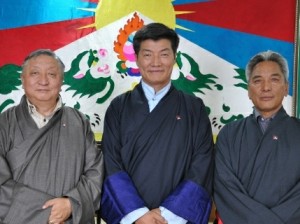 On 14 June, the European Parliament passed a new resolution during its plenary session in Strasbourg calling on the Chinese government to put an end to human rights abuses in Tibet. The resolution criticizes China’s ban on elections for the Tibetan government-in-exile in Nepal and demands China to reveal the fate and whereabouts of Chedun Choekyi Nyima, the 11th Panchen Lama.
On 14 June, the European Parliament passed a new resolution during its plenary session in Strasbourg calling on the Chinese government to put an end to human rights abuses in Tibet. The resolution criticizes China’s ban on elections for the Tibetan government-in-exile in Nepal and demands China to reveal the fate and whereabouts of Chedun Choekyi Nyima, the 11th Panchen Lama.
The parliamentarians expressed their deep concern over the 42 Tibetans who have self-immolated since 2009 in protest against restrictive Chinese policies in Tibet, and asked the authorities of the People’s Republic of China to allow independent international inspection of prisons and detention centers.
The resolution also asks EU foreign policy chief, Catherine Ashton, to appoint a special coordinator to report regularly on the situation in Tibet and provide assistance to refugees.
The European Parliament is not the first democratic body to call on China to meaningfully address the situation in Tibet in recent months. On 30 March, the U.S. Senate unanimously passed a resolution urging the Chinese government to end its repressive policies in the Tibet Autonomous Region. The resolution also called on China to release all persons who have been arbitrarily detained and to allow unrestricted access to journalists, foreign diplomats and international organizations inside Tibet. China responded by accusing lawmakers in Washington of interfering with its internal affairs.
The whereabouts of many who survived their protests remains unknown. Despite support from the international community, self-immolations and human rights abuses continue unabated, and the practical effects of political resolutions on Tibet by foreign governments remain to be seen.




 Print
Print Email
Email